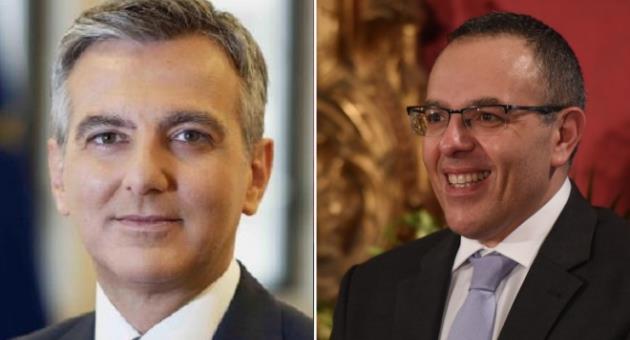
Now, what explanation could there possibly be for Keith Schembri to refuse to answer questions in court on 17 Black and Macbridge?
That sounds a bit facetious, I get it.
But consider that the case we’re talking about here is one he instituted himself in his own defence when Simon Busuttil drew his own conclusion from the Panama Papers leaks and, as Daphne Caruana Galizia summed it up in the last hour of her life, stood up in court to say he was not a crook.
That was the first part of his testimony in his own case. Since he opened the case himself he first gets to say what he wants, answering comfortable questions from his own lawyer. He used that time on October 16th, 2017, to deny he’s done anything wrong.
Whenever one testifies and answers questions from the side that brought them as a witness to their case, they must then answer the questions from the other side. That’s when things become interesting: when they’re actually challenged and made to confront the evidence.
Keith Schembri has been dodging that for fourteen months now.
He’s done it again today as he instead got his lawyers to prevent any difficult questions asked of him about 17 Black and Macbridge.
You don’t say! Judge Giovanni Grixti has just a few days ago told Simon Busuttil that unless he can prove Keith Schembri committed a crime he won’t allow a Magistrate to file the evidence Simon Busuttil has already collected.
Of course ‘he will try to use the information elsewhere’ apart of course from his legitimate defence from the accusation made by Keith Schembri that Simon Busuttil has defamed him.
It’s not defamation if it’s true.
Someone defending themselves from libel is entitled to present evidence that shows their claims are backed up by facts. It does not matter if all the facts were known to the person making a claim before or after they have made it. At least it shouldn’t. If that sounds like hesitation, it’s because the Court is now having to take more time to consider this argument.
If I have two sources that suggest Mr X is a crook and I publish; Mr X sues me for defamation; I am not able to present the two sources in my defence but other evidence of Mr X’s crookedness has since emerged and that I can produce. Can there really be a rule that prevents me from arguing in my own defence and forces me to be found guilty of defaming a crook by calling him one?
That is what Keith Schembri argued in court today.
In October 2017, that crook Keith Schembri went to court to say he’s not a crook. Today he went to court to say that any evidence to show he’s a crook cannot be used in contradicting him. And any questions put to him under oath that might cast doubt whether he was really being defamed when he was branded a quick should be stopped even before they’re spoken.
You’d have to wonder why.